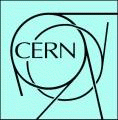−Table of Contents
CERN-INTAS 03-52-4297
Final meeting in Dubna
Final all member meeting will take plave in Dubna, 25 of June, Sunday.
Agenda
- A.P.Kryukov - subtask T1.1. Advanced algorithms and tools for
resource allocation and job scheduling;
- V.B. Gavilov (V. Kolosov) - subtask T1.2. Large scale data flow
simulation in local and GRID environment;
- A.P. Kryukov - subtask T2.1. Monitoring of application jobs;
- Yu.F. Ryabov - subtask T2.2. Monitoring of the GRID infrastructure
state;
- V.V. Korenkov - task T3. Optimization of data access and transfer in
the LCG;
- E.A.Slabospitskaya - task T4. The development of test suite for new
LCG middleware;
- V. Mitsyn - subtask T5.1. Use of the VMware for construction of
VO’s on different platforms and OS versions;
- D. Oleynik - subtask T5.2. Porting some of the LCG software on the
MS Windows.NET platform;
- V. Ilyin - subtask T6.1. Installing and testing components of the
LCG infrastructure to achieve full-scale functionality;
- A. Demichev - subtask T6.2. OGSA/Globus evaluation for data
intensive applications;
- E. Nikonov - subtask T6.3. Development of Russian LCG portal.
Advance algorithms and tools for LHC Computing
CONSORTIUM
- Information Technology Department CERN, Geneve - Switzerland
- Skobeltsyn Institute of Nuclear Physics MSU, Moscow - Russia
- Budker Institute of Nuclear Physics, Novosibirsk - Russia
- Institute for High Energy Physics, Protvino - Russia
- Institute of Theoretical and Experimental Physics, Moscow - Russia
- Laboratory of Information Technology JINR, Dubna - Russia
- Petersburg Institute of Nuclear Physics, St.-Petersburg- Russia
- Forschungszentrum Karlsruhe, HIK - Germany
- Istituto Nazionale di Fisica Nucleare, Padova - Italy
Duration: 24 Months
SUMMARY
This project is devoted to the development of advanced algorithms and tools, study of optimization problems, methods of testing, evaluation of emerging soft- and middleware for the LCG infrastructure. An analysis of Grid systems, including computer modeling, is also to be carried out. A distinctive of the project is that the results (being in tight correspondence with the general LCG plans and scheduling) will be directly applied to enhancement of functionality of the Russian LCG segment and as well will be offered for use in the whole LCG infrastructure. Six Russian institutes (ITEP and SINP MSU in Moscow, JINR in Dubna, IHEP in Protvino, PNPI in Gatchina, near St-Petersburg, and BINP from Novosibirsk), being basic institutions in the Russian LHC Regional Center activity, and three INTAS teams, CERN IT (Geneve, Switzerland), Forschungszentrum (Karlsruhe, Germany) and INFN (Padova, Italy), being one of the major participants in the LHC Computing GRID project, have decided to join efforts to get this main goal. The investigations will be based on the activity initiated and carried out under the preceding INTAS-CERN project (No. 00-0440). The results of this research provide a solid background for more advanced and practical activity in the framework of the current proposal.
The team has a good experience in applications of the advanced technology of distributed computations in High Energy Physics. Development of advanced mathematical techniques, including computer modeling, for LCG aims at improving functionality of key components of Grid systems. Development of the infrastructure- state and data-migration monitoring tools as well as optimization of data access and transfer (including optimization of data flow migration between different end users and Tier-levels) should result in enhancement the LCG usability, performance, quality of service, etc. The complicated LCG infrastructure requires various types of monitoring tools: to obtain information about operational state of computing systems and networks and providing statistic information about the resources, data flow, job execution. A special test suite to be constructed in the framework of this project is intended for comprehensive testing of new implementations of data services. An important part of this proposal is the creation of a background for development of LCG at further stages. A practical part of the project includes installation and tests of components of the LCG infrastructure in the Russian segment and aims at achieving its full-scale functionality. Thus, the expected results should provide an integration of the Russian GRID segment into the whole LCG infrastructure and, eventually, full-scale participation of Russian scientists in the LHC experiments.
Task List
T1. Advanced mathematical techniques for LCG
Task leader - A. Kryukov, SINP-MSU
- T1.1. Advanced algorithms and tools for resource allocation and job scheduling; (Task coordinator: M. Sgavaratto, INFN-Padova)
- T1.2. Large scale data flow simulation in local and GRID environment. (Task coordinator: V.Kolosov, ITEP)
More details >>>
T2. GRID monitoring tools
Task leader - Yu. Ryabov, PNPI
- T2.1. Monitoring of application jobs; (Task coordinator: A.Kryukov, SINP MSU)
- T2.2. Monitoring of the GRID infrastructure state. (Task coordinator: Yu.Ryabov, PNPI)
More details >>>
T3. Optimization of data access and transfer in the LCG
Task leader - V. Korenkov, JINR
More details >>>
T4. The development of test suite for new LCG middleware
Task leader - I.Bird, CERN-IT.
More details >>>
T5. The use of the Windows platform for LCG tasks
Task leader - M. Kunze, FZK
- T5.1. Use of the VMware for construction of VO's on different platforms and OS versions; (Task coordinator: M.Kunze, FZK)
- T5.2. Porting some of the LCG software on the MS Windows.NET platform. (Task coordinator: D.Oleynik, JINR)
More details >>>
T6. Deployment of LCG infrastructure for creating Russian Grid segment
Task leader - V. Ilyin, SINP MSU
- T6.1. Installing and testing components of the LCG infrastructure to achieve full-scale functionality; (Task coordinator: V.Ilyin, SINP MSU)
- T6.2. OGSA/Globus evaluation for data intensive applications; (Task coordinator: A.Demichev, SINP MSU)
- T6.3. Development of Russian LCG portal. (Task coordinator: E.Nikonov, JINR)
More details >>>

